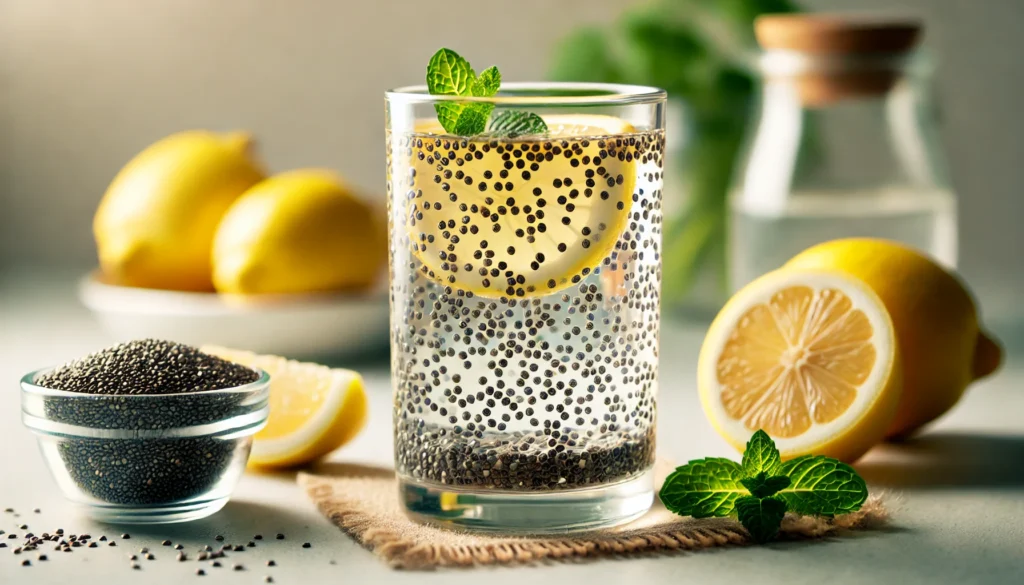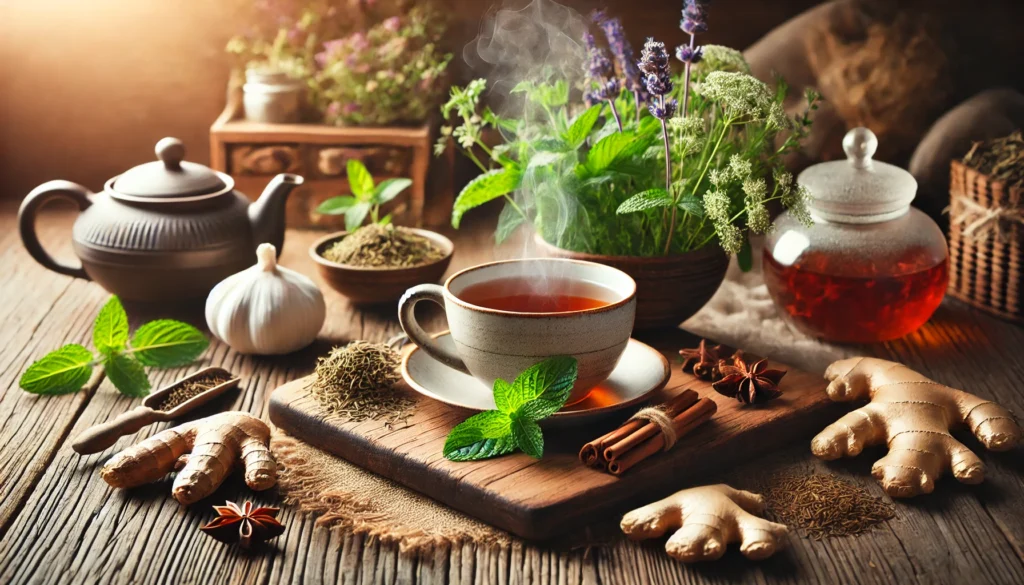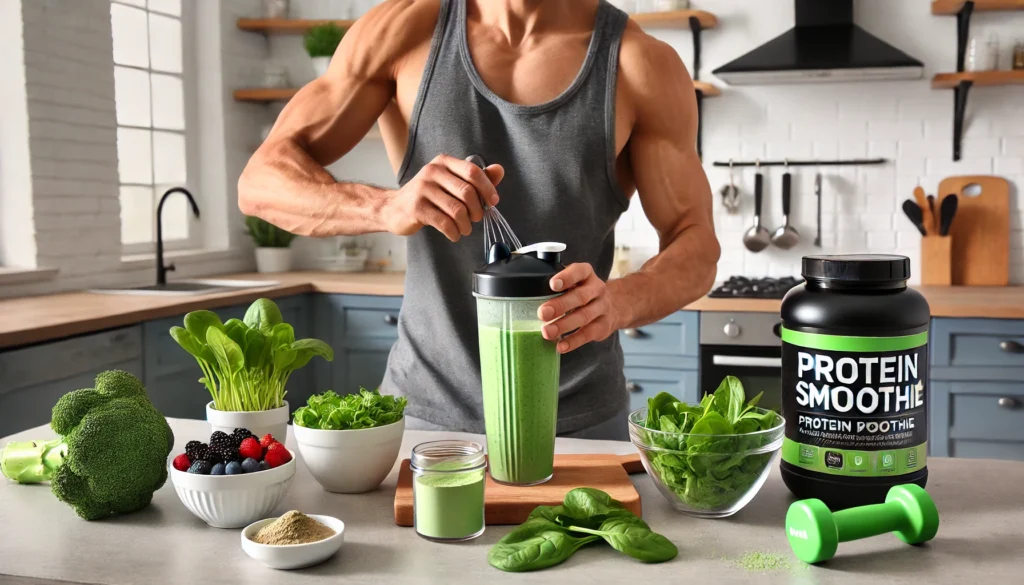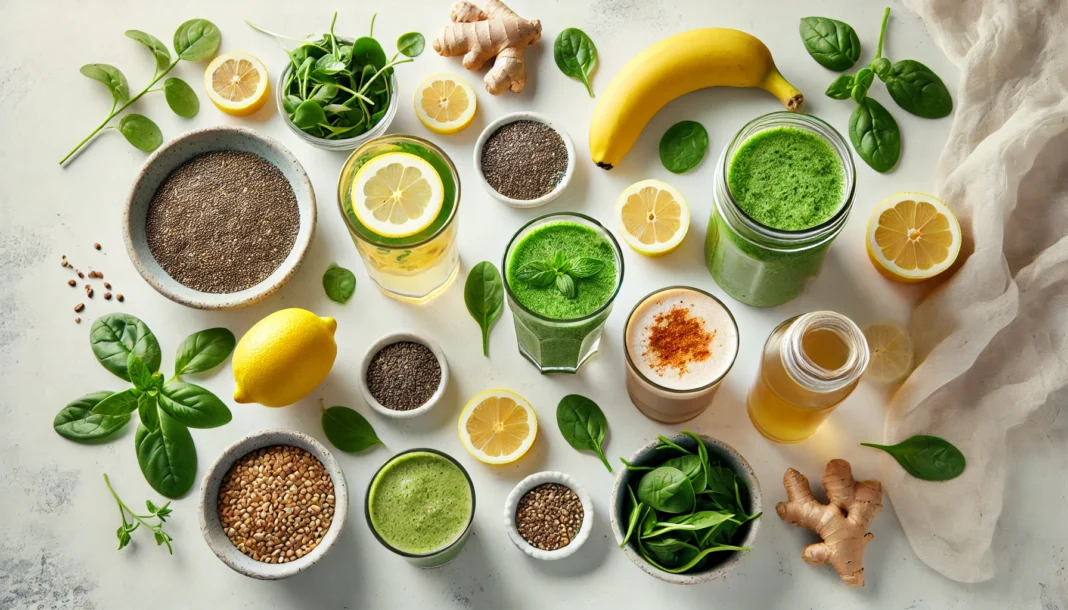Introduction: The Rise of Hunger Control Drinks in Natural Health
In today’s health-conscious society, more people are turning to holistic solutions for appetite management and weight control. While pharmaceuticals and synthetic appetite suppressants still dominate some markets, there is a growing awareness of the potential benefits of natural alternatives. Among these, hunger control drinks have gained considerable attention. These beverages offer a convenient, plant-based way to manage appetite without the side effects often associated with commercial drugs. From herbal infusions to homemade appetite suppressant drinks, the options are both varied and rooted in time-tested traditions.
You may also like: The Best Supplements for Weight Loss: Natural Vitamins, Herbs, and Products That Help Women and Men Burn Fat Safely
The interest in natural appetite suppression is not merely a trend. It reflects a deeper movement toward whole-body wellness, where gut health, hormone regulation, hydration, and mindful consumption intersect. As people seek out drinks that curb hunger in a sustainable and nourishing way, both scientific research and traditional herbal wisdom are offering useful insights. Understanding which drinks that stop hunger actually work and how they can be integrated into a daily wellness routine requires more than anecdotal claims—it demands evidence, experience, and expert knowledge.
This article explores the most effective homemade appetite suppressant drinks and herbal remedies for natural appetite control. We’ll examine the physiological mechanisms that make these beverages effective, highlight ingredients supported by both tradition and emerging research, and provide strategies to use them for real, sustainable results. Whether you’re navigating a new diet plan or looking to refine your approach to nutrition, hunger control drinks may offer a meaningful addition to your wellness journey.

Understanding Hunger: Why Control Matters in a Health Plan
Before diving into specific drinks that curb hunger, it’s important to understand how hunger works. Appetite is influenced by a range of factors including blood sugar fluctuations, hormone signals like ghrelin and leptin, hydration status, and even emotional triggers. Often, hunger is not merely a signal that the body needs energy, but a complex physiological and psychological interplay. That’s why simply eating less isn’t always a practical or sustainable solution.
Drinks that stop hunger naturally can work in multiple ways: by promoting hydration, stabilizing blood sugar, or even modulating hunger hormones. They may also offer a sense of satiety through volume and fiber content. Unlike quick fixes, these solutions work best when combined with a broader commitment to healthy lifestyle choices. For example, someone who drinks herbal teas before meals may find it easier to recognize true hunger versus habitual snacking urges.
Furthermore, many hunger control drinks support metabolic functions, reduce cravings, and promote digestive comfort—all critical components of healthy weight management. As such, they are not about suppressing appetite to the point of discomfort but rather supporting the body’s natural cues for hunger and fullness. This is especially valuable for those who seek to improve their relationship with food or who struggle with emotional or stress-related eating.

The Science Behind Herbal Drinks That Suppress Appetite
Herbal drinks have long been used in traditional systems of medicine to regulate appetite and digestion. Today, scientific investigations are beginning to uncover why certain plants are effective as natural appetite suppressants. For instance, herbs such as gymnema sylvestre, green tea, ginger, and fenugreek are known to influence blood sugar levels and gastrointestinal hormones involved in satiety.
Drinks that stop hunger often contain bioactive compounds that interact with receptors in the gut or brain to signal fullness. For example, green tea contains catechins and caffeine, which not only boost metabolism but also reduce food intake by influencing neurotransmitters. Similarly, ginger can reduce gastric emptying, allowing food to stay longer in the stomach, which promotes a sensation of fullness.
Other ingredients used in hunger control drinks include bitter herbs like gentian or dandelion root, which stimulate digestive secretions and help modulate appetite through gut-brain signaling pathways. What makes these herbal options appealing is their dual role: not only do they help curb hunger, but they also contribute to improved digestion, detoxification, and energy balance. That’s why incorporating these drinks into daily routines is not just about reducing calories—it’s about optimizing the body’s natural rhythms.

Homemade Appetite Suppressant Drinks: Natural Recipes That Deliver Results
Creating homemade appetite suppressant drinks offers the benefit of full control over ingredients, allowing for customization based on taste preferences and health goals. One of the simplest and most effective beverages in this category is a fiber-rich chia seed drink. When mixed with water and a splash of lemon or apple cider vinegar, chia seeds swell into a gel-like consistency that provides bulk and reduces hunger naturally.
Another popular option is infused herbal water with ingredients like mint, cucumber, and citrus. These ingredients provide a refreshing taste while subtly modulating appetite. Mint, in particular, has been studied for its ability to soothe digestive distress, which can sometimes be mistaken for hunger. Adding psyllium husk to smoothies or teas is another powerful technique, as it delivers soluble fiber that slows digestion and prolongs fullness.
For those seeking more traditional herbal blends, brewing a tea with fenugreek seeds, licorice root, or hibiscus can offer potent appetite-controlling effects. These herbs act as mild diuretics and metabolic enhancers, supporting both hunger control and detoxification. The key to success with homemade drinks that curb hunger is consistency. Drinking these beverages regularly, particularly before meals, primes the body to eat more mindfully and prevent overconsumption.
Functional Beverages That Curb Cravings and Balance Blood Sugar
Many hunger control drinks also function as blood sugar stabilizers, which is essential for appetite regulation. A major trigger for excessive hunger is blood sugar volatility. When glucose levels spike and crash, the body responds with cravings and increased appetite. Drinks that stabilize these levels, especially when consumed between meals, can prevent unnecessary snacking and overeating.
Apple cider vinegar diluted in warm water, for instance, has been shown to improve insulin sensitivity and lower blood glucose responses to carbohydrate-rich meals. Similarly, cinnamon tea offers powerful glycemic control, with studies suggesting that cinnamon may slow carbohydrate absorption and improve glucose metabolism. When these ingredients are paired with fiber or healthy fats, their satiating effects are even more pronounced.
Protein-rich beverages made from plant-based sources such as pea or hemp protein can also function as drinks that stop hunger. These options are particularly helpful after workouts or during fasting windows. When blended with healthy fats like avocado or MCT oil, these drinks create a longer-lasting feeling of fullness while fueling the body with clean energy. These functional drinks go beyond appetite suppression—they enhance metabolic health, hormonal balance, and even mood regulation.
When and How to Use Hunger Control Drinks for Maximum Effect
To get the most benefit from drinks that curb hunger, timing and context matter. While sipping these beverages throughout the day can help reduce cravings, strategically using them before meals often delivers the most consistent results. Drinking a hunger control tea or fiber-infused beverage 30 minutes before eating may help reduce total caloric intake by enhancing satiety signals.
It’s also helpful to identify personal hunger patterns. For some, mid-afternoon is a vulnerable time when blood sugar dips, leading to snacking. Preparing a homemade appetite suppressant drink in advance can act as a safeguard against impulsive eating. Similarly, drinking herbal blends in the evening can help curb late-night cravings, especially for sugar or processed snacks.
Importantly, hunger control drinks should complement rather than replace a nutrient-dense diet. These beverages are most effective when paired with whole foods, regular physical activity, adequate sleep, and stress management practices. Their purpose is not to eliminate appetite altogether, but to bring it into alignment with the body’s actual needs. When used mindfully, they can empower individuals to make more conscious and health-supportive decisions around food.
Frequently Asked Questions (FAQ) on Hunger Control Drinks
What are the most effective hunger control drinks for curbing evening cravings?
Evening cravings often stem from a combination of hormonal shifts, fatigue, and stress-related eating, making targeted hunger control drinks especially useful during this time. Drinks that curb hunger best at night typically contain ingredients like magnesium-rich cacao, casein protein, or calming adaptogens like ashwagandha. These components help signal satiety while also reducing cortisol levels, which can spike in the evening and increase appetite. Homemade appetite suppressant drinks that include warm almond milk, cinnamon, and a dash of cocoa can act as both a relaxing ritual and a way to feel full before bed. Among the drinks that stop hunger effectively at night, herbal infusions with valerian or chamomile can subtly blunt the drive to snack by calming the nervous system and promoting restful sleep.
How do homemade appetite suppressant drinks compare to commercial products?
Homemade appetite suppressant drinks offer a more customizable and natural approach compared to many commercial beverages, which may include synthetic ingredients or excess caffeine. A well-prepared homemade option can use whole-food sources like chia seeds, apple cider vinegar, or soluble fiber from psyllium husk to support fullness and digestion. These drinks that stop hunger can be adjusted to fit your specific preferences, whether you need a warm blend before bed or a refreshing mid-afternoon tonic. Hunger control drinks made at home also allow for control over added sugars and artificial flavors, a concern in many shelf-stable commercial products. With consistency, these DIY drinks that curb hunger can be equally, if not more, effective in managing cravings.
Can drinks that curb hunger help regulate emotional or stress eating?
Yes, drinks that curb hunger can play a supportive role in managing emotional eating, especially when combined with mindful consumption and stress-reduction techniques. Hunger control drinks that include ingredients like L-theanine (found in green tea), reishi mushroom, or adaptogenic herbs can blunt stress-related cortisol spikes that often lead to impulsive snacking. Homemade appetite suppressant drinks made with calming herbs and a touch of natural sweetness—like chamomile with a splash of raw honey—can also satisfy emotional needs without triggering blood sugar crashes. Over time, substituting these beverages for stress-induced food binges helps retrain your brain’s reward systems. When used regularly, drinks that stop hunger may serve as a behavioral tool in emotional regulation as much as a nutritional aid.
Are hunger control drinks safe for long-term use?
Most hunger control drinks made with whole-food or herbal ingredients are safe for long-term use when consumed as part of a balanced diet. The key is to rotate the types of homemade appetite suppressant drinks you consume to ensure nutritional diversity and avoid dependency on a single herb or stimulant. For example, alternating between psyllium-fiber tonics, green juice blends, and protein-rich shakes can provide variety while keeping hunger in check. Some drinks that stop hunger—especially those with high doses of caffeine or laxative herbs—should be used cautiously or cycled to prevent tolerance and side effects. If you’re considering long-term use of specific drinks that curb hunger, it’s wise to consult a registered dietitian or integrative physician for tailored guidance.
How do hunger control drinks impact metabolism?
While hunger control drinks don’t directly “boost” metabolism in the way stimulants might, they can support metabolic efficiency by regulating appetite, glycemic control, and meal timing. When strategically consumed—such as before meals or during fasting windows—drinks that curb hunger may reduce overeating and support a calorie-controlled eating pattern. Some homemade appetite suppressant drinks, like those containing cinnamon, ginger, or apple cider vinegar, can help with insulin sensitivity and blood sugar stabilization, indirectly enhancing metabolic health. Additionally, high-protein drinks that stop hunger contribute to thermogenesis and lean muscle retention, which are important for maintaining metabolic rate. Incorporating hunger control drinks into a metabolic wellness plan requires consistency and awareness of their ingredients’ cumulative effects.
What are the best ingredients to include in homemade appetite suppressant drinks?
Effective homemade appetite suppressant drinks often include a blend of fiber, protein, healthy fats, or botanicals that trigger satiety signals. Popular options include flax or chia seeds for fiber, unsweetened protein powders for muscle support, and MCT oil for sustained fullness. For those who prefer herbal formulas, fenugreek, dandelion root, and peppermint are herbs known to assist in appetite control and digestion. When crafting drinks that stop hunger, also consider thermogenic spices like cayenne pepper or ginger, which provide mild appetite suppression and digestive support. The most effective drinks that curb hunger combine flavor with functionality to make them sustainable parts of your routine.
Can hunger control drinks help with intermittent fasting?
Yes, hunger control drinks can be incredibly useful during intermittent fasting, especially during fasting windows when caloric intake is restricted but hydration and appetite management are needed. Non-caloric drinks that curb hunger—such as green tea, black coffee, or herbal infusions—can blunt the psychological discomfort of hunger without breaking the fast. For those using time-restricted eating protocols, sipping on homemade appetite suppressant drinks like warm lemon water with cinnamon or diluted apple cider vinegar can provide a sense of fullness and control cravings. If your fasting method allows minimal calories, small amounts of MCT oil or bone broth in drinks that stop hunger may further enhance satiety. Strategically using these beverages can make fasting more sustainable and psychologically manageable.
Do certain hunger control drinks work better before or after meals?
Timing plays a critical role in the effectiveness of hunger control drinks. When consumed before meals, drinks that stop hunger—especially those with soluble fiber, vinegar, or mild protein—can delay gastric emptying and trigger early satiety. Post-meal hunger control drinks may help blunt blood sugar spikes or minimize the urge for dessert, especially if they contain ingredients like cinnamon, chromium, or bitter herbs. Homemade appetite suppressant drinks used strategically before high-risk eating times (like parties or late-night snacks) can also reduce overconsumption. Understanding when to use drinks that curb hunger depends on your appetite patterns and goals—preemptive consumption generally offers the strongest benefits.
Are there any drawbacks to using drinks that stop hunger?
While generally safe, overreliance on hunger control drinks can create imbalances if they replace nutrient-dense meals or suppress normal hunger cues. Some homemade appetite suppressant drinks—if overly diuretic or low in nutrients—may contribute to dehydration or nutrient gaps over time. Furthermore, appetite suppression should not override the body’s need for nourishment during stress, illness, or recovery. It’s also worth noting that not all drinks that stop hunger work for everyone—individual tolerance to herbs, fibers, or acids can vary widely. As with any nutritional tool, moderation, personalization, and whole-food balance are essential to avoid negative effects.
What’s the best way to include hunger control drinks in a daily routine?
To get the most from hunger control drinks, integrate them intentionally around your hunger patterns, energy dips, or challenging food environments. Starting the day with a fiber-rich or protein-based drink that curbs hunger can reduce mid-morning snacking. Mid-afternoon is another ideal window for drinks that stop hunger, particularly when blood sugar and energy often drop. For evening cravings, a warm, calming, homemade appetite suppressant drink can serve as both a behavioral and physiological cue to wind down. Keeping a few staple hunger control drinks on hand—prepped ahead or easy to mix—can help reinforce positive eating habits throughout the day.
Conclusion: Harnessing the Power of Natural Drinks That Stop Hunger Safely and Effectively
As the wellness landscape continues to shift toward holistic, evidence-informed approaches, hunger control drinks are emerging as valuable allies in the pursuit of sustainable health. These beverages, whether store-bought or homemade, offer a practical and natural way to support appetite regulation, improve metabolic function, and reduce reliance on willpower alone. For those navigating the complex world of nutrition, adding drinks that stop hunger to their daily routine can be a simple yet transformative step.
From herbal infusions that balance hormones to homemade appetite suppressant drinks packed with fiber and antioxidants, the variety and versatility of these options allow for personalization and adaptability. Importantly, they work in harmony with the body’s natural processes, promoting mindful eating and long-term wellness rather than quick fixes or restrictive practices. As with any health strategy, consistency and personalization are key. But for many, the right drink at the right time could be exactly what it takes to shift from struggle to success in managing hunger and achieving health goals.
natural appetite control, fiber drinks for weight loss, appetite suppressant teas, herbal detox beverages, sugar craving reduction drinks, satiety boosting drinks, natural weight loss strategies, gut-brain axis regulation, mindful hydration habits, metabolism enhancing teas, blood sugar friendly beverages, herbal metabolism boosters, holistic weight management, drink-based meal prep, healthy snack alternatives, functional hydration solutions, gut-friendly herbal drinks, natural fat-burning teas, herbal adaptogens for cravings, clean energy drinks
Further Reading:
25 Drinks and Foods that Suppress Appetite and Cravings
15 Homemade Weight Loss Drinks with Recipes and Ingredients
Everyday foods and drinks that act as natural appetite suppressants
The information contained in this article is provided for general informational purposes only and is not intended to serve as medical, legal, or professional advice. While NewsHealthWatch strives to present accurate, up-to-date, and reliable content, no warranty or guarantee, expressed or implied, is made regarding the completeness, accuracy, or adequacy of the information provided. Readers are strongly advised to seek the guidance of a qualified healthcare provider or other relevant professionals before acting on any information contained in this article. NewsHealthWatch, its authors, editors, and contributors expressly disclaim any liability for any damages, losses, or consequences arising directly or indirectly from the use, interpretation, or reliance on any information presented herein. The views and opinions expressed in this article are those of the author(s) and do not necessarily reflect the official policies or positions of NewsHealthWatch.

